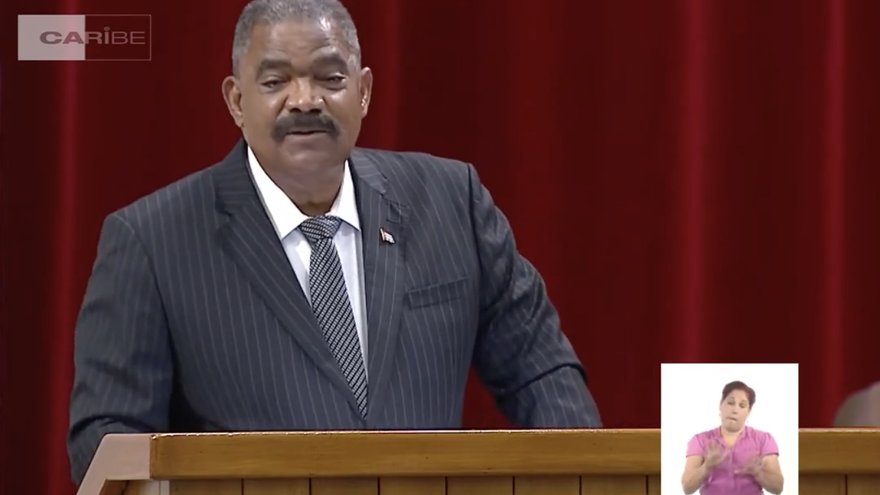
![]() 14ymedio, Madrid, 21 July 2023 — The long speech this Thursday by the president of the People’s Supreme Court, Rubén Remigio Ferro, before the National Assembly of People’s Power, to present the Law of the Military Criminal Code, had its most prominent moment in the argument made by the official for the death penalty on the Island.
14ymedio, Madrid, 21 July 2023 — The long speech this Thursday by the president of the People’s Supreme Court, Rubén Remigio Ferro, before the National Assembly of People’s Power, to present the Law of the Military Criminal Code, had its most prominent moment in the argument made by the official for the death penalty on the Island.
Defending that the new law reduces the crimes for which a person can be punished with the death penalty, Ferro recalled that a “death penalty” has not been applied for twenty years, since “those events of the hijacking of the boat and all that situation took place.”
With those words, the president of the Supreme Court referred to the hijacking in 2003, by a group of mostly young people, of the ferry that made the journey between Regla and Old Havana with the aim of reaching the United States. The boat soon ran out of fuel, and ten people were arrested and prosecuted. Among them were Lorenzo Copello, Bárbaro Sevilla and Jorge Martínez, who were shot after a nine-day summary trial.
“There is no official statement about it, but all this elapsed time is a kind of undeclared moratorium,” Ferro said regarding the death penalty. “That does not mean that it doesn’t exist and that it is the most serious penalty for several crimes,” he specified, giving as an example the “crime of terrorism,” precisely for which the hijackers of the Regla ferry were convicted, despite the fact that they only wanted to flee the Island.
The president of the Supreme Court justified: “We have to have it there as an element of defense of our society, as a defense of our State, of our Revolution, in the face of the very serious threats in which we permanently live. And also for citizen tranquility.”
After Ferro’s appearance, as expected, the deputies approved the Military Criminal Code Law, which updates the Military Crimes Law of 1979.
The objective, according to the Government, was to “consolidate legal security, the protection of citizens’ rights, institutionality, military and social discipline and internal order, in accordance with the Guidelines of the Economic and Social Policy of the Party and the Revolution.”
Among the novelties of the law highlighted by the official press is the elimination of certain types of crime now included in the new Criminal Code, approved last year. Also, according to the authorities, “it adjusts the content of the international treaties in force for the Republic of Cuba, such as the United Nations Convention on the Law of the Sea, the Geneva Conventions and its two additional protocols.”
The law presumes to establish “differentiated criminal treatment for those over 16 and under 18, to comply with the precepts of the Convention on the Rights of the Child.” However, it retains from the previous law the prison sentences for young people who evade the now so-called active military service (SMA). In the 1979 rule, those who do not comply with this obligation could be punished with one to five years in prison; now they can be sentenced to between two and five years.
The abuse of SMA cadets in tasks for which they are not prepared had its most tragic episode in the disaster of the Matanzas supertanker bases, where several of them lost their lives in the impossible work of extinguishing the fire. Last week, another fire, this time in Manzanillo (Granma), cost injuries to some recruits.
The draft ruling received testimony about the conditions in which young Cubans are recruited for what the regime considers “an honorable duty” and forced to carry out tasks from loading containers to repression of demonstrators.
Reports of deaths from accidents, suicides and murders among recruits are rarely mentioned in the official Cuban press. However, independent journalists have recorded numerous incidents that, in many cases, involve the use of regulatory weapons.
Translated by Regina Anavy
____________
COLLABORATE WITH OUR WORK: The 14ymedio team is committed to practicing serious journalism that reflects Cuba’s reality in all its depth. Thank you for joining us on this long journey. We invite you to continue supporting us by becoming a member of 14ymedio now. Together we can continue transforming journalism in Cuba.
